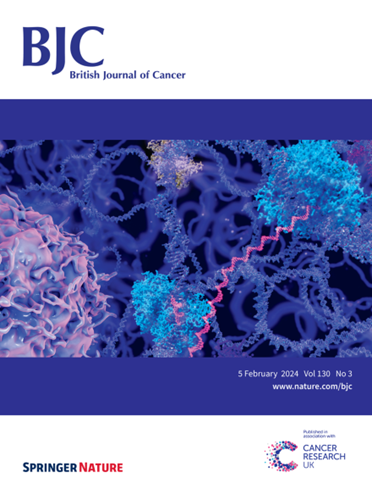Identification of diagnostic biomarkers in prostate cancer-related fatigue by construction of predictive models and experimental validation
IF 6.4
1区 医学
Q1 ONCOLOGY
引用次数: 0
Abstract
Cancer-related fatigue (CRF) is a prominent cancer-related complication occurring in Prostate cancer (PCa) patients, profoundly affecting prognosis. The lack of diagnostic criteria and biomarkers hampers the management of CRF. The CRF-related data and PCa single-cell data were retrieved from the GEO database and clinical data was downloaded from the TCGA database. The univariate logistic/Cox regression analysis were used to construct the prediction models. The predictive value of models was analyzed using the ROC curve and Kaplan-Meier survival. The hub genes were screened by an intersection analysis of DEGs. The mice model of PCa and PCa-related fatigue were established, and fatigue-like behaviors of mice were detected. The expression of selected hub genes was validated by RT-PCR and IHC analysis. The diagnosis and risk models showed great predictive value both in the training and validation dataset. Five genes (Baiap2l2, Cacng4, Sytl2, Sec31b and Ms4a1) that enriched the CXCL signaling were identified as hub genes. Among all hub genes, the MS4A1 expression is the most significant in PCa-related fatigue mice. We identified MS4A1 as a promising biomarker for the diagnosis of PCa-related fatigue. Our findings would lay a foundation for revealing the pathogenesis and developing therapies for PCa-related fatigue.

通过构建预测模型和实验验证,确定前列腺癌相关疲劳的诊断生物标志物。
背景:癌症相关疲劳(CRF)是前列腺癌(PCa)患者出现的一种常见癌症相关并发症,严重影响预后。诊断标准和生物标志物的缺乏阻碍了对 CRF 的管理:方法:从 GEO 数据库检索 CRF 相关数据和 PCa 单细胞数据,并从 TCGA 数据库下载临床数据。采用单变量逻辑/Cox回归分析构建预测模型。利用ROC曲线和Kaplan-Meier生存率分析模型的预测价值。通过对 DEGs 的交叉分析筛选出枢纽基因。建立了 PCa 和 PCa 相关疲劳小鼠模型,并检测了小鼠的疲劳样行为。通过 RT-PCR 和 IHC 分析验证了所选中心基因的表达:结果:诊断和风险模型在训练数据集和验证数据集中都显示出很高的预测价值。五个富含 CXCL 信号的基因(Baiap2l2、Cacng4、Sytl2、Sec31b 和 Ms4a1)被确定为枢纽基因。在所有中枢基因中,MS4A1在PCa相关疲劳小鼠中的表达最为显著:结论:我们发现MS4A1是诊断PCa相关性疲劳的一种有前景的生物标记物。我们的发现将为揭示PCa相关疲劳的发病机制和开发治疗方法奠定基础。
本文章由计算机程序翻译,如有差异,请以英文原文为准。
求助全文
约1分钟内获得全文
求助全文
来源期刊

British Journal of Cancer
医学-肿瘤学
CiteScore
15.10
自引率
1.10%
发文量
383
审稿时长
6 months
期刊介绍:
The British Journal of Cancer is one of the most-cited general cancer journals, publishing significant advances in translational and clinical cancer research.It also publishes high-quality reviews and thought-provoking comment on all aspects of cancer prevention,diagnosis and treatment.
 求助内容:
求助内容: 应助结果提醒方式:
应助结果提醒方式:


